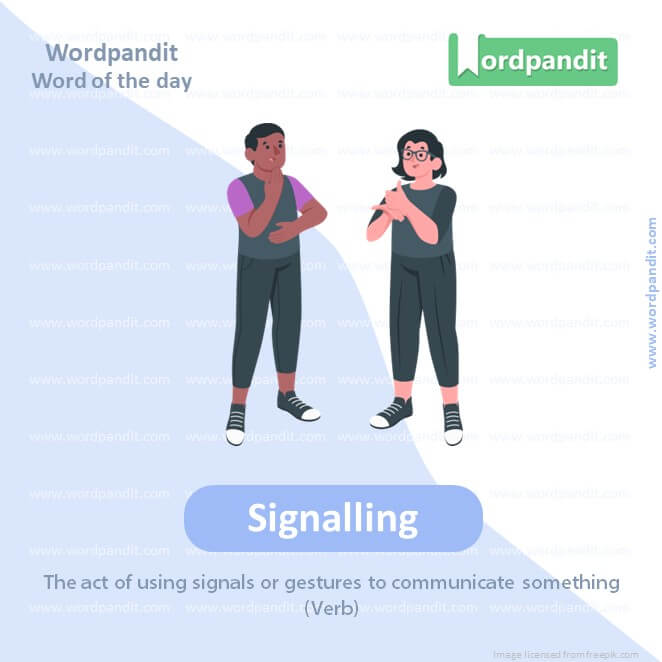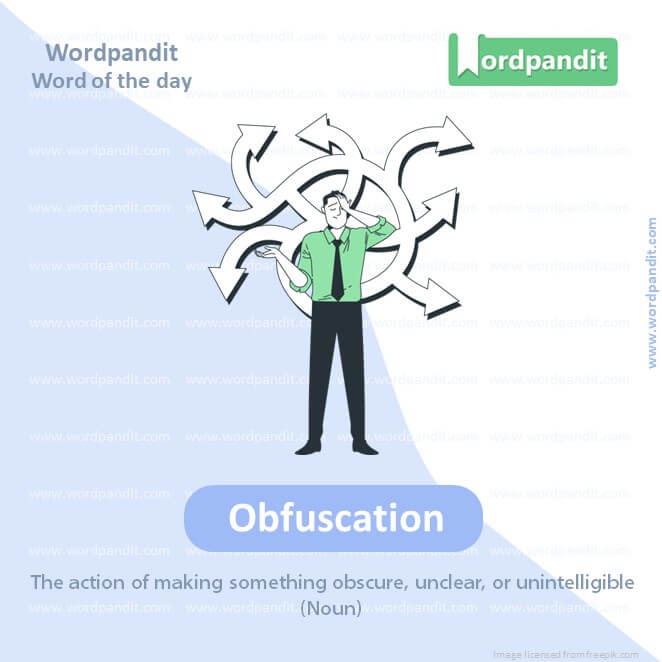Daily Vocabulary Words: List of Daily Used Words in Leading Indian Newspapers
Hi there. Welcome to this special section @ Wordpandit. Our endeavour here is straightforward: highlighting daily vocabulary words that you would come across in leading newspapers in the country. We have included the following newspapers in our selection:
• The Times of India
• The Economic Times
• Hindustan Times
• Mint
• Indian Express
We are putting in extensive work to develop your vocabulary. All you have to do is be regular with this section and check out this post daily. This is your repository of commonly used words; essentially, we are posting a list of daily used words. Hence, this has significant practical application as it teaches you words that are commonly used in leading publications mentioned above.
Visit the website daily to learn words from leading Indian newspapers.
WORD-1: Abstentions
CONTEXT: the UN General Assembly voted with an overwhelming margin –164 in favour, five against, and eight abstentions.
SOURCE: Indian express
EXPLANATORY PARAGRAPH: Abstentions are like when you’re asked to choose between chocolate and vanilla ice cream, but you decide not to choose either. It means not voting yes or no, just not voting at all.
MEANING: The act of not voting or choosing not to participate in a decision (Noun).
PRONUNCIATION: ab-STEN-shuns
SYNONYMS: Non-voting, Refraining, Avoidance, Non-participation, Withholding, Abstinence, Non-involvement
USAGE EXAMPLES:
1. There were three abstentions in the vote.
2. She chose abstentions during the decision-making process.
3. The meeting recorded several abstentions on the proposal.
4. Abstentions were noted in the election results.
WORD-2: Culmination
CONTEXT: This marked the culmination of an important phase in the campaign by human rights and arms control activists to ban autonomous weapons.
SOURCE: Times of India
EXPLANATORY PARAGRAPH: Culmination is like when you build a big tower of blocks, and you finally put the last block on top. It’s the point where everything you’ve been doing finishes or reaches its highest point.
MEANING: The highest or final point of something, especially as a climax to an event or series of events (Noun).
PRONUNCIATION: kul-mi-NAY-shun
SYNONYMS: Climax, Peak, Apex, Pinnacle, Zenith, Summit, Crest
USAGE EXAMPLES:
1. The championship game was the culmination of a great season.
2. The concert was the culmination of months of practice.
3. The project reached its culmination after years of research.
4. Her speech was the culmination of the evening.

WORD-3: Doctrines
CONTEXT: the capacity to outthink China and develop capabilities and doctrines that can counter PLA’s advantages.
SOURCE: Times of India
EXPLANATORY PARAGRAPH: Doctrines are like the important rules or ideas that guide a group, like how sharing and being kind are rules in a classroom.
MEANING: A set of beliefs held and taught by a group, such as a church or political party (Noun).
PRONUNCIATION: DOK-trinz
SYNONYMS: Beliefs, Principles, Teachings, Creeds, Dogmas, Ideologies, Tenets
USAGE EXAMPLES:
1. The political party’s doctrines influenced its policies.
2. She studied the religious doctrines of various cultures.
3. His beliefs were in line with the company’s doctrines.
4. The doctrines of non-violence were central to his philosophy.

WORD-4: Reconnaissance
CONTEXT: It is deploying AI for various functions from inventory management, maintenance, and logistics and in developing unmanned systems for a full range of functions, including reconnaissance, surveillance, and combat.
SOURCE: Hindustan Times
EXPLANATORY PARAGRAPH: Reconnaissance is like when you sneakily look around the playground to find the best place to play. It means exploring or examining an area to gather information.
MEANING: The act of gathering information about an enemy or competitor, often by examining the area (Noun).
PRONUNCIATION: ree-KAHN-uh-suhns
SYNONYMS: Survey, Exploration, Scouting, Examination, Surveillance, Inspection, Probe
USAGE EXAMPLES:
1. The team carried out reconnaissance before the match.
2. Aerial reconnaissance was used to map the area.
3. The spy was on a reconnaissance mission.
4. Reconnaissance teams reported back on the terrain.

WORD-5: Signalling
CONTEXT: Today, India is signalling a balanced approach to national security, ethics, and global governance in engaging with the military applications of AI.
SOURCE: Indian express
EXPLANATORY PARAGRAPH: Signalling is like when you wave your hand to show your friend where you are in the park. It means using signs, lights, or actions to send a message.
MEANING: The act of using signals or gestures to communicate something (Verb).
PRONUNCIATION: SIG-nuh-ling
SYNONYMS: Indicating, Gesturing, Motioning, Waving, Beckoning, Flagging, Signifying
USAGE EXAMPLES:
1. She was signalling for help from the shore.
2. The train was signalling as it approached the station.
3. He started signalling to the other drivers on the road.
4. Signalling in sports can convey strategic messages.

WORD-6: Maritime
CONTEXT: the Himalayan and maritime frontiers, AI should necessarily be an important part of India’s national defence plans.
SOURCE: Hindustan times
EXPLANATORY PARAGRAPH: Maritime is like anything that has to do with the sea or ships, like pirates who sail on the ocean or a big port where boats come and go.
MEANING: Related to the sea and navigation or shipping (Adjective).
PRONUNCIATION: MAR-ih-tyme
SYNONYMS: Nautical, Naval, Oceanic, Seafaring, Aquatic, Marine, Sea-based
USAGE EXAMPLES:
1. The maritime museum displayed ancient ships.
2. They specialize in maritime law.
3. The maritime climate affects the coastal region.
4. He pursued a career in the maritime industry.

WORD-7: Obfuscation
CONTEXT: the State seem to collude with political parties in this obfuscation by granting income tax exemption.
SOURCE: Times of India
EXPLANATORY PARAGRAPH: Obfuscation is like when you try to hide your toys under a blanket so no one can see them. It means making something unclear or difficult to understand.
MEANING: The action of making something obscure, unclear, or unintelligible (Noun).
PRONUNCIATION: ob-fuhs-KAY-shun
SYNONYMS: Confusion, Complication, Mystification, Clouding, Blurring, Obscuring, Veiling
USAGE EXAMPLES:
1. The report was filled with technical obfuscation.
2. She accused him of obfuscation during the debate.
3. The policy was criticized for its obfuscation of key issues.
4. Legal documents often contain a degree of obfuscation.
WORD-8: Opaque
CONTEXT: the Supreme Court (SC) raised inconvenient questions and appeared to be seeing the point made by the petitioners questioning the merit and intent of this opaque instrument.
SOURCE: Indian express
EXPLANATORY PARAGRAPH: Opaque is like a curtain that you can’t see through. It means something is not clear or transparent.
MEANING: Not able to be seen through; not transparent (Adjective).
PRONUNCIATION: oh-PAKE
SYNONYMS: Cloudy, Obscure, Nontransparent, Murky, Dense, Foggy, Impenetrable
USAGE EXAMPLES:
1. The windows were made of opaque glass.
2. His intentions were opaque to everyone.
3. The liquid turned opaque when mixed.
4. The report’s language was intentionally opaque.
WORD-9: Delegitimising
CONTEXT: The Court refrained from staying or delegitimising electoral bonds leaving everyone wondering if yet another opportunity to pronounce on a matter of “great pith and moment” was lost in the absence of “the native hue of resolution”
SOURCE: Indian express
EXPLANATORY PARAGRAPH: Delegitimising is like saying someone’s turn in a game doesn’t count because they didn’t follow the rules. It means making something seem not valid or not acceptable.
MEANING: To make something appear invalid or not acceptable (Verb).
PRONUNCIATION: dee-le-JIT-uh-myz-ing
SYNONYMS: Discrediting, Invalidating, Undermining, Disqualifying, Denouncing, Repudiating, Disparaging
USAGE EXAMPLES:
1. They were accused of delegitimising the election results.
2. The article aimed at delegitimising the government’s policy.
3. Such actions risk delegitimising the entire process.
4. He was delegitimising his opponent’s achievements.
WORD-10: Munificence
CONTEXT: If the donor and a political party want to have a bond of anonymous munificence, such contributions and incomes must be fully taxed.
SOURCE: Indian express
EXPLANATORY PARAGRAPH: Munificence is like when someone gives a lot of gifts or helps people a lot. It means being very generous or giving.
MEANING: The quality of being very generous or giving (Noun).
PRONUNCIATION: myoo-NIF-i-suhns
SYNONYMS: Generosity, Liberality, Bountifulness, Benevolence, Magnanimity, Largesse, Openhandedness
USAGE EXAMPLES:
1. The charity praised his munificence.
2. Her munificence was well-known in the community.
3. The museum was built through the munificence of donors.
4. The king’s munificence was legendary among his subjects.
vocabulary upsc
The Union Public Service Commission (UPSC) examination represents a significant milestone for many aspirants across India. Part of the journey to success involves comprehending and utilizing a robust ‘vocabulary UPSC’ that can set competitive exam takers apart from the crowd. Let us delve into the nuances of how this essential resource can be mastered effectively.
For starters, one has to understand the significance of ‘vocabulary UPSC.’ This is much more than rote learning a word list. It’s about understanding the connotations, the nuances, and the context in which these words are used. This understanding can greatly improve not only your comprehension skills but also your performance in the English language section of the The Union Public Service Commission exam.
Following the understanding stage, come practice and revision. ‘Vocabulary UPSC’ learning cannot occur overnight, and it is essential to devote a specified time daily to learn and review new words. Incorporating vocabulary-learning into your daily study habit can help you enhance your linguistic skills and aid in long-term retention.
Another much-needed approach to ‘vocabulary UPSC’ is using the learned words in regular communication. This method reinforces learning and aids retention. Additionally, creating a personal word diary where you note down new words, their meanings, and context can serve as your go-to guide for revision.
One common misconception about ‘vocabulary UPSC’ is that it’s only limited to English. However, it is vital to understand that the concept extends beyond languages. Terms used in subjects like History, Geography, or Economics should also be part of your vocabulary repository. This multifaceted conception can significantly aid in developing a comprehensive understanding of subjects, ultimately resulting in a higher score.
In conclusion, mastering ‘vocabulary UPSC’ requires consistent effort, deep understanding, and practical application. The journey to UPSC success is not just about learning; it’s about knowing how to use your learning effectively. So, embark on this discovery with a clear goal and unwavering dedication, and success will surely be yours.













